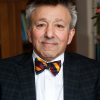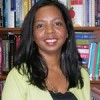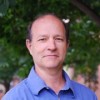10 Must Take Psychology Professors in Washington, D.C.
 A research-heavy profession by nature, psychology and psychologists get very little publicity and fanfare surrounding their work by design. Sure, people within the industry know how to recognize outstanding contributions to the field but the topics are often too dense and the research too nuanced and tedious for the general public to take serious interest. Yet psychology is still one of the most popular degree tracks at any university around the country and it is usually one of the largest undergraduate programs at any given university or college. The brilliant psychologists responsible for educating the next generation in their field get very little credit for the hard work they do behind the scenes to advance the profession and we are going to start changing that. We picked out a small handful of psychology professors who deserve, at the very least, to receive a public pat on the back for not only their research contributions to the schools but also for their real-life contributions to their students. We start in the nation’s capital, Washington DC.
A research-heavy profession by nature, psychology and psychologists get very little publicity and fanfare surrounding their work by design. Sure, people within the industry know how to recognize outstanding contributions to the field but the topics are often too dense and the research too nuanced and tedious for the general public to take serious interest. Yet psychology is still one of the most popular degree tracks at any university around the country and it is usually one of the largest undergraduate programs at any given university or college. The brilliant psychologists responsible for educating the next generation in their field get very little credit for the hard work they do behind the scenes to advance the profession and we are going to start changing that. We picked out a small handful of psychology professors who deserve, at the very least, to receive a public pat on the back for not only their research contributions to the schools but also for their real-life contributions to their students. We start in the nation’s capital, Washington DC.
Laura Juliano, Associate Professor of Psychology, American University
It only makes sense that we start with a professor from one of the cities’ largest and most prestigious research institutions and Dr. Juliano was an easy choice. Respected by her students for her deep understanding of behavioral psychology and beloved for her engaging lectures and genuine desire to see her students understand the subject material, Dr. Juliano has the somewhat unique luxury of boasting legitimate research and experience chops as well clear and apparent teaching ability. A graduate of the State University of New York at Binghamton with a degree in psychology, Dr. Juliano went on to earn her PhD in Clinical Psychology from the same university before completing a post-doctoral fellowship at Johns Hopkins University School of Medicine. Juliano’s research focuses on the mechanism that influence drug taking with a special emphasis on tobacco and caffeine, which takes shape in some of the studies that she has helped author. In addition to her teaching duties at American, Dr. Juliano is also the Director of the Behavioral Pharmacology and Health Promotion Laboratory at the University, so you can see why we felt her ability to juggle all of her responsibilities so well earned her a spot on this list.
"What I love about being a professor at American University is that I get to combine my passions for research and teaching every day, as both activities are highly valued and supported. I am grateful for the opportunities I have to teach a wide variety of Psychology courses to undergraduate and graduate students who are engaged, eager to learn, hardworking, and diverse. Few things bring me as much pleasure as sharing the fascinating principles of psychology and their real world applications with others." - Laura Juliano
 Paul Poppen, Professor of Applied Social Psychology, George Washington University
Paul Poppen, Professor of Applied Social Psychology, George Washington University
Generally we try to stay away from highlighting department chairs when we make these lists not because they are unworthy, but as the public face of the psychology program, they generally receive more recognition than some of their colleagues. But in the case of Poppen, we made an exception not only based on reviews from his students but also based on his prolific writing and research abilities as well as his diverse and extensive experience in the field. Poppen earned his PhD from Cornell University in the 1970s and has been teaching at GW ever since. This is his second stint as the chairperson of the department and he is also the director of the Applied Social Psychology program at the school. His research focuses on gender and culture and the intersection of those with HIV/AIDS. He serves on the Executive Committee of the GW HIV/AIDS Institute, and is the Director of the Behavioral Science, Public Health, and Biostatistics Core of the DC Developmental Center for AIDS Research. He has at least played a part in the research and publication of a number of different projects related to AIDS research and is considered something of an authoritative expert on the subject. Students appreciate not only his obvious knowledge on the subject but also his dry wit and his ability to make classes interesting, even when they are early in the morning. Forget his accomplishments, any professor that can keep a student interested in the subject material of an 8:00 a.m. class deserves more than just some recognition from us.
"The field of psychology is interested in the world, and the world is increasingly interested in psychology. The new generation of psychologists will collaborate with researchers on every continent." - Paul Poppen
Deborah Clawson, Associate Professor of Psychology, Catholic University
Let’s get one thing out of the way immediately: Dr. Clawson has likely forgot more about psychology than most people will ever know. She has studied psychology throughout her entire educational career, starting with a double degree in Computer Science and Psychology from Cornell, then a Master’s degree and a PhD in Cognitive Psychology from the University of Colorado. Just trying to understand her research interests can make any non-psychologist’s head spin. Her research, in laymen’s terms, has to do with the methods for improving performance on cognitive tasks but that only scratches the surface of her work. She has been teaching at Catholic University since earning her PhD and in addition to teaching both undergraduate and graduate classes, she is also the Director of the Applied Experimental PhD program and Human Factors Master’s program as well. Her list of publication credits would take weeks to read through and she has been invited to speak and present so many times all across the country that the airlines must love her. But where she really shines is in the classroom where some students are willing to go as far to call her the best teacher they ever had. They rave about her willingness to help both in and out of the classroom, her ability to make the material easy to understand, and her ability to make all of her classes interesting no matter the subject material. When you combine the impressive resume with the almost universally positive reviews from students, you get a professor who deserves to be on this list.
 Fathali Moghaddam, Psychology Professor, Georgetown University
Fathali Moghaddam, Psychology Professor, Georgetown University
You didn’t think we would get very far into this list before including a professor from one of the country’s premier and most prestigious universities did you? The bigger question was which member of the all-star faculty in the psychology department would we choose to highlight and after some research, Moghaddam was a clear choice. Born in Iran and raised in England, Moghaddam got his Bachelor’s degree from the University of Liverpool before collecting a Master’s degree and PhD from the University of Surrey. Since then he has worked in universities in Iran, worked odd jobs outside of the psychology field, and worked at McGill University in Quebec before landing at Georgetown in the 1990s. His research focuses on cultural psychology and he is not only the Director of the Conflict Resolution Program at Georgetown but he is also the editor of Peace and Conflict: The Journal of Peace Psychology. Even in a field littered with terrific writers, Moghaddam is in a class of his own. He has published more books than most people have probably read and that doesn’t even count his contributions to articles and journals in the field as well. Students called him brilliant and whip-smart and really appreciated that he took an individualized interest in seeing each of his students succeed.
"Studying psychology is a lifetime exploration of puzzles within both myself and the people around me. Students of psychology never get bored!" - Fathali Moghaddam
Alfred Wade Boykin, Psychology Professor, Howard University
Dr. Boykin is the perfect example of why we make this list. The general public probably hasn’t heard of Dr. Boykin or his lauded work on subjects such as academic discrepancies between African-American and Caucasian students. But within the psychology community, he is something of a rock star. A graduate of Hampton University in the late 1960s, Dr. Boykin went on to get his Master’s degree and PhD in experimental psychology from the University of Michigan. In the early 1980s, Boykin joined the faculty at Howard University and has become an institution at the prestigious historically black college. Not only does he teach, he is also the Executive Director of the Capstone Institute, which researches education trends for at-risk students. He is co-editor of a book on black psychologists which was a critically acclaimed book within the field and he recently co-authored another book on the achievement gap in education. He was also the Co-Director of the Task Force on the Relevance of the Social Sciences to the Black Experience at Yale University and served on the President’s National Mathematics Advisory Panel. We could continue on with his list of prestigious titles, but instead we will note that his students have nothing but good things to say about his ability to engage students, his lecture style, and his eye-opening class on psychology and the black experience. A man this accomplished may tend to look down his nose at his less-educated pupils, but according to students he couldn’t be more down-to-earth, understandable, and helpful.
 Tania N. Thomas-Presswood, Associate Professor of School Psychology, Gallaudet University
Tania N. Thomas-Presswood, Associate Professor of School Psychology, Gallaudet University
Perhaps the country’s most famous school for deaf and hard of hearing students, Gallaudet boasts an incredible faculty in all areas of education, but especially in psychology. And professors like Dr. Thomas-Presswood are a big reason why. Thomas-Presswood didn’t have to leave Long Island for any of her three degrees in psychology that include and Master’s degree and PhD in Clinical and School Psychology from Hofstra University. Her research focuses on the cognitive and educational assessment of children; cultural and linguistic diversity; deaf and hard of hearing and assessment; and disadvantaged children and families and she has published numerous books and articles on the topics. Thomas-Presswood doesn’t just speak from an academic background though, she has also spent time as a school psychologist in both New York and Texas and currently practices as a school psychologist in nearby Arlington, Virginia. Students appreciate her caring attitude and willingness to listen as well as her in-depth knowledge of the field and willingness to share her experiences from the field. Teaching at a university geared for students with hearing disabilities presents a whole new set of challenges for professors and Thomas-Presswood seems to have handled those issues with aplomb, making her all the more deserving of some recognition.
Mark Bolden, Professor of Counseling, Trinity Washington University
Although Trinity Washington University perennially lives in the shadows of the more well-known schools in Washington, D.C., that doesn’t mean it or its faculty should be discounted. In fact, the school’s master’s degree program in clinical mental health counseling continues to grow more popular and prestigious by the year. An assistant professor in the program, Dr. Bolden doesn’t just have a bulletproof resume that includes an undergraduate degree in Psychology and a Master’s degree in Counseling Psychology from Seton Hall University, he is also one of his students’ favorite professors thanks to his down-to-earth attitude, desire to see his students understand and learn the subject material, and his selfless and helpful attitude when it comes to helping struggling or stuck pupils. He has been published multiple times over and has won a slew of awards for his work in counseling and psychology. His teaching philosophy centers on allowing students to engage in critical thought and open and honest debate on issues of race, culture, and class. And his ability to both steer that engagement to while not imposing on his students’ ability to think and come to conclusions freely make him exactly the type of teacher that students love to have.
 Chandan Vaidya, Professor of Developmental Cognitive Neuroscience, Georgetown University
Chandan Vaidya, Professor of Developmental Cognitive Neuroscience, Georgetown University
We have profiled more than our fair share of psychology professors who are able to balance multiple responsibilities and Vaidya is no exception. Not only is she a professor at Georgetown where she teaches classes in cognitive neuroscience, she is also the co-director of the graduate program in developmental science at the university and she is also an investigator at the Children's Research Institute at the Children's National Medical Center. Her research involves methods made up of behavioral, neuropsychological, and structural and functional brain imaging. She has been a key contributor to numerous studies, is published far too many times to count, and works with everyone from normally developing people to those with developmental disorders. She has both a Master’s degree and a PhD in Developmental Psychology from Syracuse University and she did her post-doctoral training in Cognitive Neuroscience from Stanford University. Students are routinely impressed with her knowledge and understanding of the topics she teaches and they say that her caring and helpful nature make her easy to approach and easy to learn from. Cognitive neuroscience is not an academic discipline for the faint of heart, but Vaidya’s teaching style makes the subject material resonate with her students and her willingness to help means that students are far more motivated to learn as well.
"The joy of teaching cognitive neuroscience comes from sharing the enthusiasm of material that is at the essence of what makes us who we are - what are the mechanisms that enable us to see, move, think, and feel? There is no greater reward than to see students' understanding grow as we move through the semester, to see them make connections across concepts and ask more sophisticated questions of it." - Chandan Vaidya
 Anthony Ahrens, Associate Professor of Psychology, American University
Anthony Ahrens, Associate Professor of Psychology, American University
When it comes to educational pedigree, you could do a whole lot worse than the degrees from Northwestern University and Stanford University that Dr. Ahrens can boast. Armed with a Bachelor’s degree from Northwestern and a PhD from Stanford in Psychology, Dr. Ahrens has spent the entirety of his professional career ensconced in academia, primarily at American. After one year as a postdoctoral fellow in the Department of Psychology at University of Wisconsin, Ahrens became an assistant professor at American and has been there ever since. He was the department chair for some time and now directs the Master’s degree program while continuing to research things like emotion, depression, stress, and other social psychology topics. Students in his classes like to complain about how much reading is required of them, but they also admit that Dr. Ahrens does a great job synthesizing the readings during his lectures and the students also appreciate his willingness to work through the denser material with his students. His classes may not be the easy “A” that some students chase, but based on reviews, there is no doubt that students learn a lot about the subject and leave his classes with a deeper understanding of psychology.
"I'm surprised and flattered to be chosen, given the excellence of my colleagues and my tendency to ignore technique. I attribute any success I have had to remembering what I love about the material I am teaching, treating my students with the dignity they deserve as students (rather than as mere consumers), and talking incessantly about the St. Louis Cardinals. And I thank all the family, friends, teachers, and students who have inspired me over my lifetime." - Tony Ahrens
 Patrick John Brice, Professor of Psychology, Gallaudet University
Patrick John Brice, Professor of Psychology, Gallaudet University
The University of Illinois at Chicago should probably name the psychology program after Brice considering that he has three degrees from the school, including a PhD in Clinical/Developmental Psychology that he received in the 1980s. Gallaudet isn’t exactly complaining that Brice left the Windy City because he has been a sterling addition to the faculty. He has been at Gallaudet since graduating and even completed a post-doctoral fellowship at the school. He has done a decade in the Department of Counseling and has been in the Department of Psychology since 1995 where he is the program director for the Clinical Psychology PhD program. In addition to his teaching at Gallaudet, Dr. Brice has studied various aspects of development in deaf children, including social cognition; social-emotional development; and parent-child attachment. He is a reviewer for multiple journals as well as a grant reviewer for a number of funding agencies. He has been widely published on a number of topics, is consulting psychologist all over the greater D.C. area and even maintains an independent practice in the area. Students like his sense of humor, his ability to keep classes interesting, his engaging lectures and classroom strategy, and his high standards for students. We could keep going, but I don’t think we still need to explain how he ended up here do we?
"I'm quite honored to be included in this group, especially when I see all the talent and creativity in my colleagues at Gallaudet and around the community. I really do have a fantastic job. I get to spend my day discussing and exploring fascinating ideas about the human condition with bright young people who go out and make a difference. What could be better than that?" - Patrick Brice




